Zimbabwe: Assassins without guns
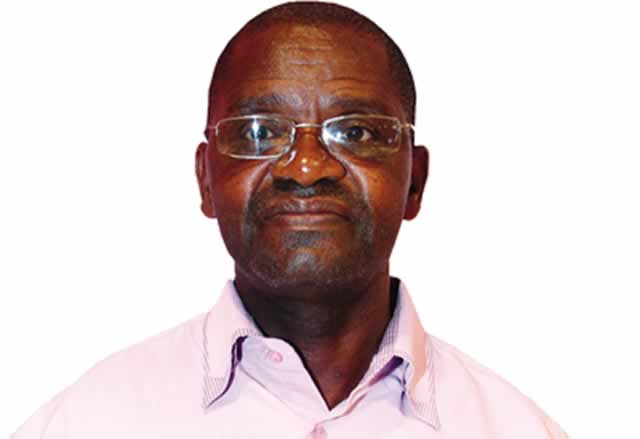
Nathaniel Manheru THE OTHER SIDE
I will part with tradition and dedicate this piece to Joram Nyathi, deputy editor of The Herald, for his inspirational “There is a method to the fine madness”, published in yesterday’s issue of the daily. The piece fitted his intellect, matched his new station in the Zimpapers group. It took me back to his writing days at The Independent, but reassuring me that if he hadn’t so written up to now, it wasn’t because he was strictured by his new employer.
Fighting red-toothed dictatorship
For the sake of my readers who may have missed Joram’s piece, it cautions Zanu-PF against overreacting to calculated provocations and excesses of the private press. On this one, he echoes his editor and a sister paper, the Sunday Mail which gave similar counsel. Zanu-PF, maintains Nyathi, “should avoid creating martyrs out of institutions or organisations which crave that status because they have nothing more of substance to contribute to the national discourse”. Calling the private press “hapless whelps barking for their supper”, he reasons that threats from the ruling party amount to “the grist these media need to buttress their claims that there is no democracy in Zimbabwe, that there is no freedom of expression, and to lobby for more foreign funding in the name of fighting a red-toothed dictatorship.” And there are ready customers, says Nyathi: “The alarms are raised for the foreign saviours who are desperate for a “casus belli” with ‘the regime’”.
Politically embeds with no ethics
As for the provenance of this “war”, Joram is stark and provocative: the “collapse of ethical reporting came with the protest politics of the MDC in the late 1990s which itself coincided with the cooling off in the liberation war ethos”. That cooling off of liberation ethos created a vacuum “quickly filled by charlatans calling themselves our liberators — the foreign-sponsored human rights and democracy lobby — whose raison d’etre in effect was to fight for and protect the landed interests of those against whom the liberation war was waged”. He adds: “That is where the polarisation in the media took shape and journalists found themselves embedded with the political parties/causes. You could not be a serious reporter or writer and remain neutral . . . If you were on the other side of the fence, it didn’t matter what epithet I used to describe you. Your point of view did not matter to balance the story”. He blames this politics-perverted, polarised media ethos, for weakening national focus by raising trivia at the expense of areas of serious national effort, warning “it is more than a matter of recklessness by journalists but a war for the soul of the nation”. The task is clear: “Liberation of the African mind is far from over”.
He attacks sin; he must be a priest
I took my time and the paper’s space to summarise Nyathi’s piece not just in tribute to him, but also to reinforce its place in the national discourse and psyche. Part of the attack on what Nyathi calls “the soul of the Nation” is the deliberate abortion, peripheralisation, truncation, garbling or abridgment of ideas and viewpoints that challenge the system of ideas leading this attack on the national soul. The fashionable and gratuitous name-calling of The Herald by the rival Daily News is part of the strategy: attack the medium to contrive a reader attitude on the message. Or the obverse, use attack on The Herald to imply professionalism resides in rival publishers and to thus commend the reader to these channels and the messages they carry. A denouncer of sin can only be a priest! In response, we have to learn to amplify messages that stand for the Nation, as opposed to messages that apotheosized “the charlatans calling themselves our liberators”. And messages that stand for the Nation need not flatter Zanu-PF, its government or the President. Rather, they must be anchored in the defence of the national interest, whose ever cow gets gored.
When elders take a stand
I focused on the article because it is from a senior member of the craft who has “done time” on both ends of the editorial spectrum, and who thus is well placed to provide experiential insights and testimonials on the matter. Let me hasten to add that what has made a difference in the current debate on the media is that for the first time in the history of the troubled industry, we have a critical mass to old hands either in active duty in newsrooms or news-related functional areas, or members who have retired but have remained watchful guardians of rules and practices that define the profession, or malpractices which undermine it. It is a “canons layer”, a “peers layer” which crystallised around the exercise that gave us the IMPI report, itself a key reference point on media debate in the country, and whose legitimacy cannot be traduced on whatever count, to the extent that it was authored by the industry. I notice key surviving and/or serving doyens of the industry: Geoffrey Nyarota, Stephen Mpofu, Funny Mushava, Cris Chinaka, Matthew Takaona, William Chikoto, among others, have pronounced themselves either bilaterally, or in very clear and unambiguous terms, all on the side of journalism. Even generational medians who are serving, characters like Dumisani Muleya, have felt conflicted by current excesses, conflicted far beyond the call of collegiality and solidarity.
The excesses are clear, even embarrassing; the priests naming the sin and ready to take confessions are from within the “order”, and not shouting from across sects. For once, the profession has got its “elders”, which means the argument can no longer reduce to one of “my-profession, right-or-wrong”. We have reached a key stage in the troubled continuum to the eventual reform and re-launch of a genuine, thriving media industry.
Supper that smells too doggy
There is a point which does not detain Joram, but which Matthew Takaona raised with amazing candour: that of ownership. The Herald’s Maodza had broached it, but at a level arguably too high for ordinary comprehension or appreciation. His piece was bedecked with authorities on media studies, written in the opaque register of media research. I single out Maodza because he personifies another dimension which makes reforms of the media industry now virtually ineluctable. There is a growing body of graduate journalists in newsrooms whose contribution to the industry is by taking coverage and analysis to a higher conceptual level, well above the “Polytechnic graduate editor” who has dominated the newsroom until now, who has distorted the same newsroom by giving it too near a conceptual horizon and ceiling by dint of his own limiting level.
This peculiar editor in so literate a society will draw a revolver at the mention of an academic degree as an entry qualification in a newsroom, let alone for editorship. The new entrant by way of the degreed news cadre has an opinion, has better conceptual tools, an advanced reading of society, too strong a sense of pride and personality to accept or receive “copy” from intervening interests, whether foreign, political or both. Even where they may not have the courage to challenge this “gift copy”, they certainly have a conscience and intellect which is bound to feel “slighted” by such demeaning offers, to keep quiet. They give us a good whelp, one akin to a dog whose supper smells dog meat.
Beyond a sparse tongue
I wondered off. Takaona’s piece blamed the regulating institutions — whether self — or statutory — for either sleeping on the job, or collaborating in the named media misdeeds through judicious silence. Or through unthinking, even inciting, reflexive support demonstrated by MISA, if I might add. It is a point Takaona must have made with great pain, given that, until a new Media Commission is in place, he remains a Commissioner of the Zimbabwe Media Commission, itself a statutory expression of the Nation’s (not Government!) wish for professionalism and lawful conduct in the media industry. But it was his point on proprietor-induced editorial coercion which I found salutary and amazingly honest. Not just because Takaona is himself a publisher (he will deny that!), but also because he was hinting at a dimension he would have got to know through shared confidences behind shut doors. Still I got his message which he sought to hide in sparse tongues and, I will amplify it for you, my reader. Yes, I will amply the issue for the sake of an industry which cannot retreat to write news laws for itself without experiencing a cathartic confession, a high-relief admission to past foibles. Isn’t they who have been calling for a Tutu-like TRC?
Armed with powers of attorney
In a way, the responsible Ministry showed awareness of the proprietor dimension in the newsroom by starting its conversation on the same matter with proprietors. But the Ministry never got proprietors: it got their workers, albeit with dubious “powers of attorney”. This is key: part of the equation of our peculiar and queer media arrangement is that the proprietor must remain shrouded in mystery. He is a ghost that nightly hovers everywhere, haunts the newsroom and pages, a ghost who is on all lips of a terrified village, but is never seen or talked to. The regime-change media system in Zimbabwe is so designed to have no identifiable interlocutor. And even where the law requires identification of publisher at registration, the veil cannot be perforated; the veil is retained and legitimised through the abuse of corporate persona.
The players in that section of the structures of the industry remain spooky and brooding and, ironically, this in an industry whose product is rated through a naming tradition of by-lines. The proprietor or publisher is never “by-lined” on the masthead. And we are the only nation in this civilised world where a spook can walk such a sensitive industry without being known or “vetted” by way of the multiple identities which Americans invoked against Rupert Murdoch when he sought to join the American media market. And it is deliberately designed that way, all to protect impious hands that dirty the industry, and with it, the national soul, and all to ensure that in the event of excesses, sitting Governments and courts deal with the “nearly” men and women minding the brooding sepulcher where resides and hides the spook by day, whence issues the roaring, terrifying spook by night. Whatever reforms are contemplated must tackle this anomaly definitively.
Many airs in the head
It goes beyond the publisher. Often, sitting editors are but just that: sitting, writing hands cross-legged. They are paid to be the face of the paper, the face of the spook, to be the nearly men/women, but the farce of substantive journalism. Fortunately — and this bears out my point on graduate cadreship — a few such sitting editors have protested, and have had to be sacked or set aside, after wanting to get off their burning bums! They have since talked, and we now know more. The remnant ones — and they are all non-degreed — have sat there, stolid on all matters but those to do with relations with Government and Zanu-PF. There they exhibit irrepressible aggressiveness that bespeak and create an impression of fierce dogs watching over the executive. With such fury’ who would think they are Rottweilers before their proprietors? Yet they are employed to bark or whelp as is appropriate, to draw the “new liberators’” attention. It gives them a disgusting duality: happy to be kicked in the home, fiercely feral when perfunctorily stroked by an unconcerned, civil passerby. Or worse when shooed by a villager whose goat they have mauled kumafuro, away from their master’s territory. Like the nearly executives who strut to meetings meant for publishers, many airs in the head, they are what Government meets in place of real but invisible editors.
This one daily
In the case of one daily, the opaqueness is compounded. You have its ghostly owner who is said to harbour political ambition ahead of 2018, and thus who wants to keep the pot permanently stirred and boiling. He resides outside the country. He put forward a little boy who used to be with the public media, puts him forward as the owner, the publisher. The little boy, in turn, also put his younger brother in charge of the project. Still an “editor” is appointed. But the younger brother is married, has a wife who works for some foreign embassy with infinite interest in the politics of this country. She is the conduit of copy from that country’s hostile mission, which finds space routinely in the paper. You have to cut through all those smoking layers that screen you from real goings-on. You have to push aside the dummy put before you as the consequential interlocutor you must engage on editorial matters, to reach the real editor, to reach and the real owner. Fortunately, the owner has pushed matters to a head, and might have to unleash his fangs in defence of his whelping “litter” after a catch and scratch.
Suitors who feel broody
I adverted to copy that is “donated”. This “copy” has tended to come from three key sources. The first source has been political actors across the political divide. The strangest thing about the oppositional portion of the Zimbabwean media industry is how politically contending interests intersect, meet and even cohabit in the same newsrooms. Much worse, how forces that contend in larger society politically, often “sleep” with the same receivers of that prostituted copy, often sleep in the same newsroom, without even allowing ablution moments in the bathroom. Bizarrely, it can be literal. Also it can span the whole gamut of sex range. And as our politics fragment, so, too, have successful suitors who sleep with this village harlot. It is this phenomenon which explains why these newsrooms are having to choose between many competing copies from the same political houses, all to reflect racing political predilections. Today newsrooms are deeply divided by these multiple suitors, all of them feeling broody. The fact of running multiple partners, evenly spaced in all newsrooms, explains the frequent coincidence of headlines, as if our simple, unsophisticated news market has developed syndicated outputs.
Mutual dalliance with the foreigner
The second source has been hostile foreign embassies, whose ingratiation is badly needed and unconditionally cultivated by poorly resourced, or near-bankrupt publishers, all in return for hopes for capital, second-hand equipment, newsprint, or just the goodwill which brings with it reckless comfort akin to a kid shadowed by a muscular godfather. Often, that goodwill translates into fund-raising campaigns in countries which deploy these embassies in the first place. In between proprietor frets are many gifts – money, articles, trips and receptions – which titular editors ever work so hard to secure well in advance of actual offers. Any western diplomat will tell you the cheapest thing in Zimbabwe is getting your country’s viewpoint published in the Zimbabwean private media, provided you provide the hope for trinkets some day. And in the majority of cases, these media do not wait for copy from concerned embassies. They start composing “defences” for embittered foreign interests ahead of any solicitation or guidance from affected embassies, often making a botch of it through out-and-out zeal. Those who work in government have a ready way of tracing this strange liaison, this strange interface, in the way in which there is reciprocal rehearsal of charges, arguments, interpretation and focus between the private media and interests, enquirers, curiosities, verbalised thoughts or de-marches from certain western embassies.
Too Caucasian, too African
A third source which is in mortal decline, but is connected to the first two and completes the picture, comes by way of “syndicated” writers – often white – who remain hidden either by their daily titles and professions, or by foreign publications they are “retained” or they string for. This source is dominated by former Rhodesian journalists and war correspondents who transited into independence and became stringers for overseas and white South African publications. They had an intimate relationship with the white farmers, with ambassadors and diplomats of the white world, and enjoyed a whole network of old media hands – all white – they had worked with during the war. Their other network came from Rhodesians worldwide, with whom they shared bitterness over the fall and passage of Rhodesia. After Independence, they became markers of journalistic quality, what with their skin pigmentation in a colour-hyper-conscious environment. For a long time, befriending these hacks, or better still working under their tutelage, became a measure and acme of evolution and competence. Although syndicated functionally, they operate surreptitiously, even coming after hours to angle and edit stories for effectiveness.
The expression and copy gets very “English”, often embedding subtle racial slurs or trope which testify to advanced Caucasian nuances you never get from an editor who has lived in this country from birth, and was never anything beyond a sports reporter. To the number of these Rhodesians is added political figures who ghost-write under exotic pseudonyms so their banal and hackneyed thoughts assume the aura of vast distances and cultures. One such ghost-writer uses a Japanese name and masquerades like some concerned scholar from that country. Another one takes the name that stood for knavery in Shakespearian times. But unlike the white ghost hacks, these expose themselves by being too African, too Zimbabwean in sensibility. One of them, pretending to sound Japanese recently, sprinkled a few Japanese words any “karateka” would readily know from training. I laughed.
A requiem as tribute
I called this group dying and diminishing, advisedly. Most of Rhodesia’s scribes have either died, or left the country once they judged that its landed gentry – the white farmer – had been toppled. Still others have become dormant because of both age and fatigue from a story which has summoned and drained both spirit and body. Or they have been driven into self-immolation through destructive drinking and/or smoking habits, all to vent frustrations. Nyathi’s piece showed the direct link between the once racially gentrified land question and journalism. He was apt and percipient. They have been the link, the minders. Or they have since grown too senile to be of much use in newsrooms they once dominated. They may have occasional flashes of genius now and then, but in the main, their senility breeds occasional journalistic outbursts in an industry where subtlety is the game of persuasion. For these, a requiem is a fitting tribute. No policy need flog this dead horse.
Smothering kisses
What has been the trigger to this frenzied attack on the nation’s soul? Joram thinks the attacks have been triggered by a sense that both Zanu-PF and the fractious opposition are at their weakest, each triggering different, contrasting expectations and duties for a media so used to playing small, loyal “page” to foreign causes. The fractious opposition impels the private media to play agony aunt, a role they so ineptly do as to end up widening the chasm between vying interests within the opposition (Newsday punting for Chamisa; Independent exalting Mujuru as epicentre of opposition; Daily News hating Zanu-PF on behalf of any of these; Financial Gazette becoming a non-believer who makes sure he is not out of step or fashion by obeying the driving “zeitgeist” in opposition, nevertheless). A Zanu-PF perceived as declining inspires terminal, vaulting punches that throw them off-balance forever, and a frenzy of kisses of life to a prostrated opposition, kisses that end up smothering and suffocating the gasping patient.
A born- again colonial anthropologist from SOAS
Much as I elaborate this for Nyathi, I don’t agree with his founding premises of a weakened Zanu-PF. Perceptions of it, maybe. And you notice that even Stephen Chan, SOAS’s born-again colonial anthropologist, shares the same view. The truth is that the lashing attacks come from a combination of the politically partisan, oppositional media which is only too aware of the severely weakened opposition politics of which they are happy, unhappy protégés on the one hand, and from a growing awareness that the shared opponent – Zanu-PF – is consolidating its 2013 result on the ground, while pursuing a broad, hard-to-encompass-or-confine economic recovery strategy which is already showing shoots, and whose beneficent impact coincides with 2018. I just want to drop this as an unsubstantiated thesis which shall be explored “in extenso” next week. And the reasoning is to concentrate attacks now when the weather and national temperament is hottest and irritable (Rhodesian thinking), and before these shoots begin to flower. It is a race, ironic enough, against recovery and success they see coming, which they fear will complete the effacement of the opposition. An affirmation, in other words, of an inevitable recovery they choose to bedim and deny through a gush of negative propaganda.
Deus ex Machina in reverse
This wail, nay whelp, of helplessness and defeat comes by way of a Stephen Chan who recommends Patrick Chinamasa as a new adoptee for a baffled West, a Stephen Chan who, like an assassin who accidentally meets his target with an empty magazine, fervently invokes Providence for a “smiting” Hand to finish his target, prays for some “dues ex machina” in reverse. He warns Mugabe “might die sooner”, but wails Mugabe’s Zanu-PF will remain intact, strong enough to taunt the West, Mugabe -style, unless love is found, and found soon enough to quash its bursting ardour, something Mujuru would have done had it not have been for the December Congress that dashed western hopes. It is a desperate cry from a baffled anthropologist faced with a subject which overflows a narrow template. This adviser whose use by the West on Zimbabwe starts with the 1979 decolonization process, cannot credit Mugabe with a sophisticated, multi-layered survival and recovery plan which has made the West redundant but sufferable, and which uses party platforms and personages in ways that compound outside incomprehension. Having failed to disentangle the complex relationship between Mugabe, his deputies and his ministers, and of course the relationship between Finance minister and one of Mugabe’s deputies, a relationship developed well before the days the far-reaching decision to dollarise, Stephen Chan can only find succour and comfort in occasional mishaps like a literal presidential misstep, from which he draws very profound, drastic, professorial comedy of errors. Of course assisted in the dismal effort by a dispirited Dr Ibbotson Mandaza.
Icho!



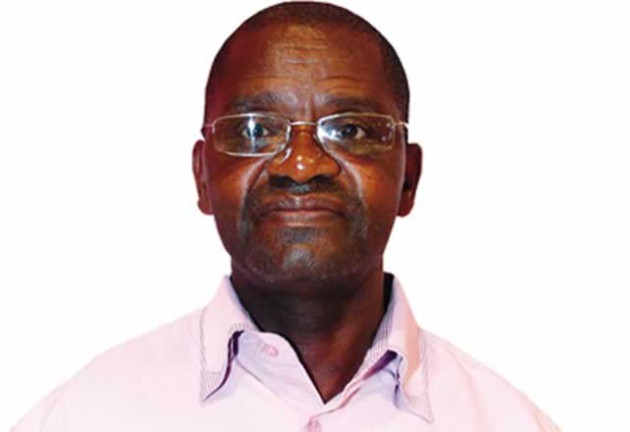
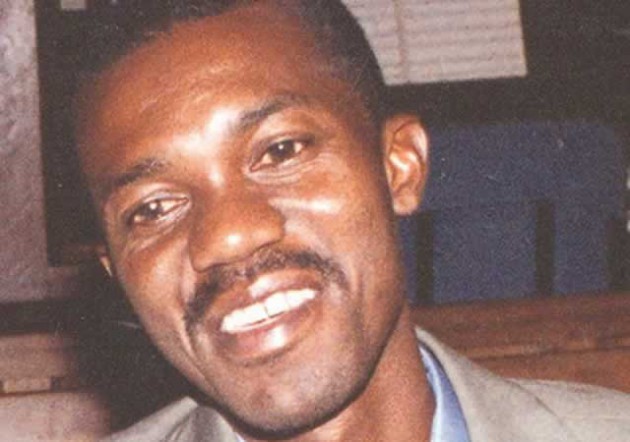
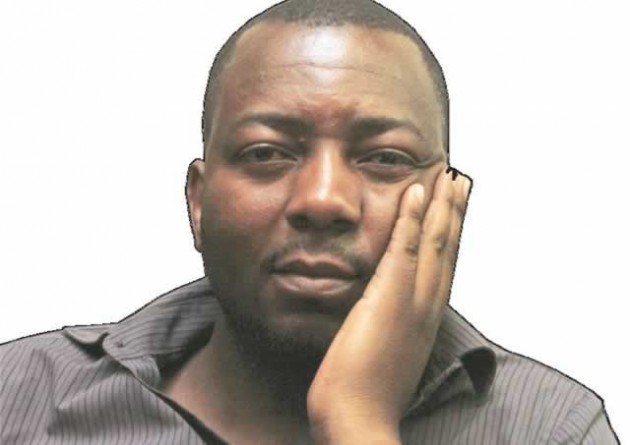
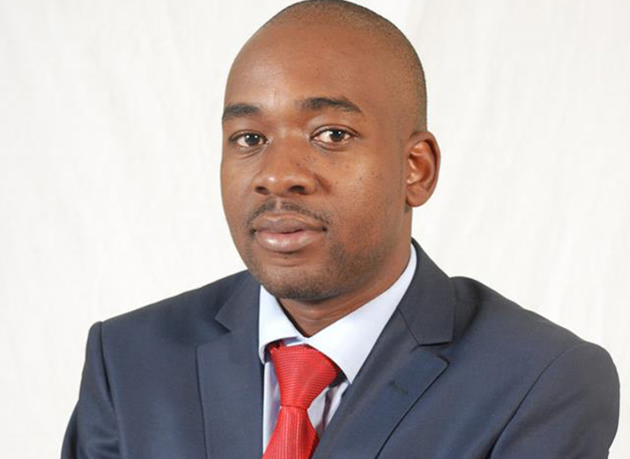
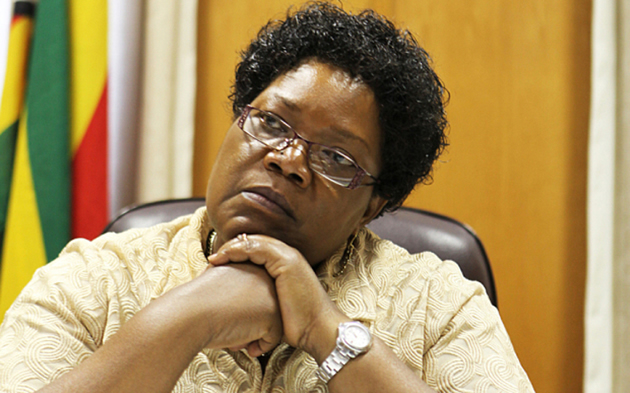


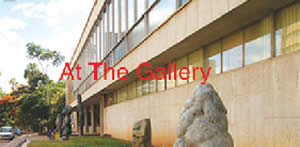




Comments